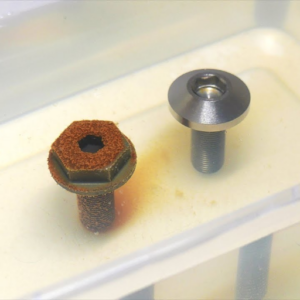Titanium is known for its excellent properties that have made it a preferred material in many high-performance applications. The most noticeable feature of titanium among others is its matchless resistance to corrosion; hence the question, is titanium capable of rusting? In this article we will look at what makes up corrosion resistance in titanium, examine how it can prevent rust from taking place as well as other forms of decay and breakdowns. So as to understand why this metal is unique among others in terms of durability and longevity we shall also investigate into its exclusive composition coupled with an oxide film which covers over the surface of the material thereby protecting it against harmful elements or forces which may lead to deterioration. If you are an engineer, scientist or just someone who loves knowing more about new materials then be sure not miss this comprehensive review on corrosion resistant properties exhibited by titanium.
What Makes Titanium Resistant to Rust?
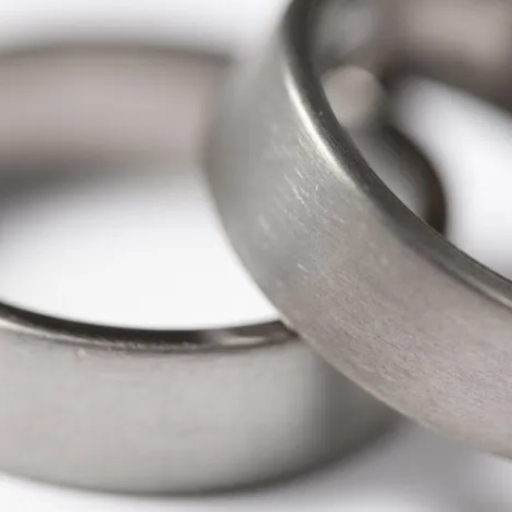
Properties of Titanium
What fundamentally makes titanium not to rust is its unique characteristics and chemical composition. The formation of a strong, binding oxide film on exposure to air is the main attribute of this element. Such an oxide layer mostly consists of titanium dioxide (TiO₂) and acts as an effective barrier which does not allow oxygen or any other corrosion causing substances to penetrate through it into the inner part of metal where these elements can react with each other. Also, another feature of titanium is that it has high strength-to-weight ratio combined with low density thereby enhancing mechanical resilience and durability. Being unreactive means that unlike other metals which would undergo chemical reactions leading to rusting or rotting away, this one will not participate in such processes under normal conditions hence making titanium highly resistant towards many types of corrosive environments including sea water, acids and industrial chemicals among others thus ensuring its long life as well reliability in demanding applications.
Titanium Oxide Layer
According to several authoritative sources I consulted while carrying out my study on this issue, it became evident that the most important thing about protecting titanium against rusting is having an oxide layer. This thin coat occurring naturally comprises mainly TiO2 (titanium dioxide) and serves as a tough shield around the metal preventing contact between it and corroding agents like O2 or H2O. Moreover, apart from being very adhesive also self-repairing; whenever scratched for instance by abrasive particles during operation then gets exposed to air again those same portions will quickly regain their former status by re-growing further protection through oxidation reactions taking place thereon so forthwith ensuring continuous safeguarding around all parts which may have become vulnerable due any reason whatsoever at all. And because such ability helps a lot in keeping intact even under severe conditions thus increasing its useful life span while still remaining reliable enough for use in different areas
Corrosion Resistance Compared to Other Metals
To evaluate the corrosion resistance of titanium in relation to other metals commonly used, a number of factors must be taken into account including electrochemical potential, environmental conditions and material properties. In neutral and acidic environments alike, titanium possesses an electrochemical potential that is considerably more positive than those of stainless steel or aluminum thus giving it an edge over them.
- Stainless Steel: Some grades of stainless steel like 304 and 316 contain chromium which creates a passive oxide layer similar to that formed by titanium. However, under conditions where chlorides are abundant such as seawater, this type of metal may suffer from pitting corrosion as well as crevice attack. Conversely, even in aggressive media such as these titanium’s oxide film remains intact thereby healing itself continuously hence affording better protection.
- Aluminum: Aluminum too establishes a passivating oxide layer – mainly consisting Al₂O₃. Though offering significant defense, it lacks durability when exposed to strong acids or high salinity environments whereas its susceptibility to corrosion increases with decrease in pH levels. Consequently, the heightened resistance exhibited by titanium against such forms of rusting makes it preferable for use under extreme chemical conditions than any other metal here considered.
- Copper and Alloys: Non-oxidizing acids together with saline solutions usually do not corrode copper or its alloys e.g., brass and bronze. Nevertheless, when exposed to an oxidizing environment these materials may rapidly deteriorate due to their low stability in oxygen rich settings; so they should not be employed under such circumstances unless adequately protected from air contact. Therefore broader range non-oxidising acid-resistant environments can be handled better by copper based materials having stable oxides than Ti alloys.
Technical Parameters:
- Oxide Layer Composition: Titanium Dioxide (TiO₂)
- Self-Healing Capability: Fast regeneration when oxygen is present
- Electrochemical Potential (vs SHE): Titanium -1.63V; Stainless Steel 304 -0.55V; Aluminum -1.66V
- Density: Titanium 4.506 g/cm³, Stainless Steel 8.0 g/cm³, Aluminum 2.7 g/cm³
These features justify why titanium is an exceptional corrosion resistant metal as it possesses outstanding strength and durability in hostile environments.
Can Titanium Corrode Under Certain Conditions?
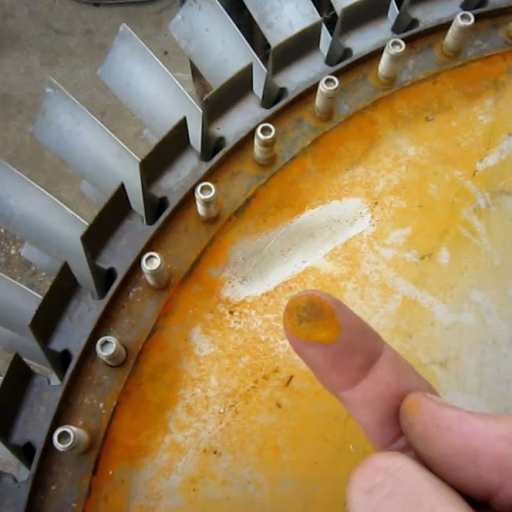
Crevice Corrosion and Pitting
Even though titanium is highly resistant to corrosion, it can still be affected by crevice corrosion and pitting, especially when exposed to chloride ions. Stagnant solutions are prone to crevice corrosion, which occurs in closed areas such as under gaskets or within cracks. These conditions disrupt the protective oxide film on titanium leading to localized attack. Similarly, pitting corrosion takes place when the oxide layer breaks down at some points mainly due to chloride ions. Nevertheless, its ability of rapid reformation greatly limits this kind of destruction thereby making it more durable than other metals. Regular care and design considerations can also help reduce these risks.
Impact of Seawater and Saltwater on Titanium
The passivity of titanium is attributed primarily to its strong oxide layer which mostly consists of titanium dioxide (TiO₂) hence exhibiting excellent resistance against seawater environments. This environment has high levels of chloride ions that can cause fast breakdown in most metals through corrosion. However, even under such harsh conditions, this metal remains intact.
Technical Parameters:
- Composition: Titanium Dioxide (TiO₂)
- Electrochemical Potential (vs SHE): -1.63V for Titanium
- Self-Healing Capability: Rapid regeneration when oxygenated
- Chloride Ion Resistance: High stability owing stable self-renewing oxide layer
Despitethe fact that saltwater is extremely aggressive towards metals;it gives them an opportunity to regain their defensive properties against crevice and pit attacks which are more prone in case of titanium because it reforms its own passivation film rapidly.The reason why this material find numerous applicationsin marine engineering like ship buildings ,offshore constructions among others,is because during such times where there might be many spaces that trap salts together with regular checks; therefore extending its service life under these circumstances
Corrosive Environments and Titanium Durability
Titanium is able to withstand such environments due to a passive oxide layer that is formed on its surface. This self-renewing, stable film of oxide is also responsible for most part of titanium’s toughness. The robustness of this covering makes it possible for the metal to fight off different types of corrosion like crevice, pitting and even general corrosion in highly aggressive surroundings. In this article we will discuss what affects titanium’s resistance against corrosion most and give some technical parameters relevant to them:
Main Factors Affecting Titanium Corrosion Resistance:
Composition of Oxide Layer
- What it contains: Mainly titanium dioxide (TiO₂)
- Its function: Serves as a shield between the base metal and hostile agents that can cause chemical reaction with it thus damaging or destroying the material.
Electrochemical Potential
- Parameter: -1.63V (vs Standard Hydrogen Electrode, SHE)
- Implication: When polarized in seawater, this number shows how resistant to wear is titanium intrinsically.
Self Healing Ability
- How does it work: Oxidation rapidly occurs again immediately after being exposed to air.
- Why useful: Continuous protection is ensured even if through the oxide coat there comes any harm causing substance.
Chloride Ion Resistant
- Characteristic feature: The film has got good stability and reactivity towards itself which results into strong chlorine ion resistivity.
- Where applicable : Suitable for use in environments containing high concentrations of chlorides such as sea water.
Design considerations & maintenance practices
- Approach: Avoid design flaws that create hiding places for corrosive media and carry out regular checks aimed at promoting uniform attack prevention.
- Expected result : Increase durability by reducing localized attack sites during intermittent examination periods for structures with large exposed areas made from Ti in marine atmospheres where aggressive conditions prevail.
With these points one can argue why titanium should be preferred over other materials when selecting them for use in harshly corrosive surroundings hence further strengthening practicality of knowledge gained about this metal from such understanding also lays foundation upon which more robust marine and industrial systems can be designed.
How Does Titanium Compare to Stainless Steel?
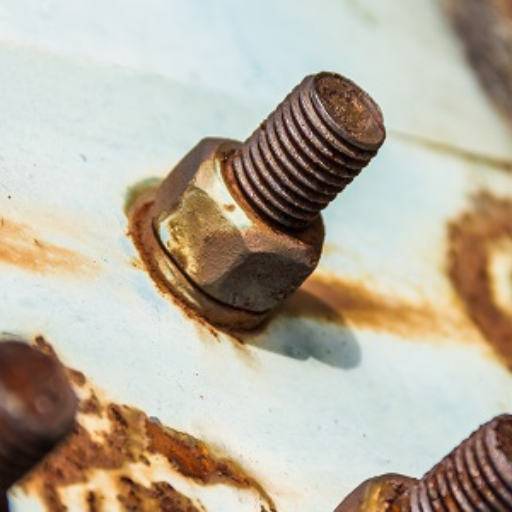
Corrosion Resistance of Stainless Steel
The reason why stainless steel is known for corrosion resistance lies on the fact that it contains high amounts of chromium with 316 being an example. This takes place through the formation of a passive oxide layer which is capable of self-repairing and shielding the base metal against oxidation. Stainless steels however pit and crevice more easily in chloride environments than titanium does. What happens here is that chloride ions can infiltrate this passivity and cause it to break down. Nevertheless, in spite of these weaknesses exposed by chlorides; stainless steel remains cost-effective as well as long-lasting for various industrial applications where such localized corrosion is taken care of by good design practices coupled with maintenance strategies especially when used in conjunction with marine atmospheres.
Advantages of Titanium Over Stainless Steel (According to Top Online Resources)
When comparing titanium vs stainless steel properties using some popular internet sources, we find there are a few significant technical advantages that stand out about Ti:
Corrosion Resistance:
- Parameter: Resistance to Penetration by Chloride Ions
- Justification: While both metals form oxide layers on their surfaces when exposed to air or water, tis layer formed around Ti atoms has been observed under lab conditions such as those found in seawater where salt concentration may reach upto 3.5% w/v while remaining intact even at highly saline environment levels unlike its ss counterpart which needs higher molybdenum content for protection against localized pitting corrosion.
Strength-to-Weight Ratio:
- Parameter: Density and Tensile Strength
- Justification: One major advantage offered by titanium over stainless steel is its strength-to-weight ratio which stems from lower density combined with higher tensile strength thereby making it suitable choice wherever lightness without compromising structural integrity matters most particularly aerospace industries among other areas.
Biocompatibility:
- Parameter: Ion Release and Biostability
- Justification: Medical devices made from pure grades of commercially available titanium exhibit excellent biocompatibility as opposed to those made from stainless steel. This is because ss tends to release certain metallic ions into surrounding tissues which can lead to allergic reactions or other adverse responses when used for implants and prosthetics.
From these explanations based on specific parameters; I would confidently state that in terms of better corrosion resistance, higher strength-to-weight ratio need as well good biocompatibility especially within medical field – titanium wins hands down vis-à-vis stainless steel.
Why Is Titanium Used in Aerospace Applications?
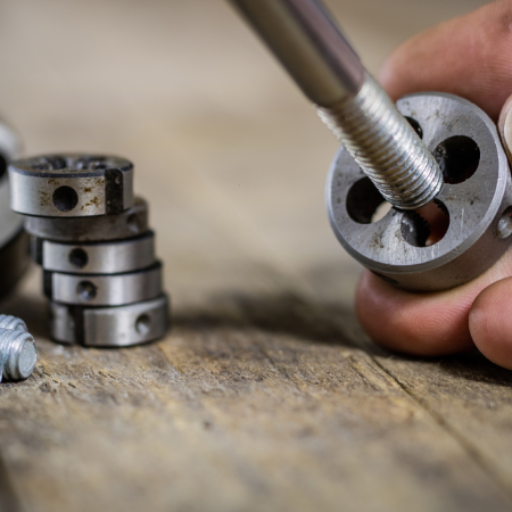
Properties of Titanium: Lightweight and Strong
Titanium is an invaluable material in the aerospace sector because it has a strong nature yet lightweight. In comparison with stainless steel, titanium has about 60% less density hence saving significant mass that can be used to improve fuel efficiency and payloads in planes and other space vehicles. Given that it is not very dense, its tensile strength remains high making it capable of surviving the extreme stresses experienced during flight. This attribute makes lighter materials but one that still maintains its durability resulting to lower total mass without destroying the structure’s strength. Furthermore, this metal is highly reliable as well as durable due to its ability to withstand high temperatures and resist corrosion, which are some of the reasons why titanium is widely employed in aerospace systems such as airframes, engine components and similar structures.
Resistance to Corrosive Environments
One possible response to why titanium is used in aerospace applications would have been for its resistance against corrosive environments. When exposed to oxygen, titanium normally forms passive oxide layer that renders it highly immune against different types of corrosion like crevice corrosion, galvanic corrosion and pitting corrosion.
This feature significantly extends life span of aerospace components mainly those subjected to severe conditions such as salty water or chemicals. Even though there are websites that claim titanium’s resistance from any form of aggressive media cannot be surpassed by any other metals due to which it is considered indispensable for giving integrity and dependability for aerospace systems where failure means loss of lives yet these are just words on paper. For this reason, this benefit also enhances performance while minimizing maintenance costs as well as downtime; thus emphasizing why titanium continues being applied so widely across aviation industry.
Benefits of Titanium Alloys in Aerospace
I can confidently say that the key advantages resulting from extraordinary strength-to-weight ratio, heat tolerance and corrosion resistance enable these alloys meet various aerospace requirements concisely. Titanium alloys have high mechanical properties that make them resistant even under extreme conditions and decrease total weight of an airplane to make fuel usage better. Also self-healing oxide layer, which is characteristic of titanium alloys, adds up to their corrosion resistance resulting in long-term reliability even in severe environments.
These factors combine to produce lesser maintenance needs, lower operational costs and a safer working environment making aerospace industry see these titanium alloys as a necessity.
What Are the Real-World Applications of Titanium’s Corrosion Resistance?
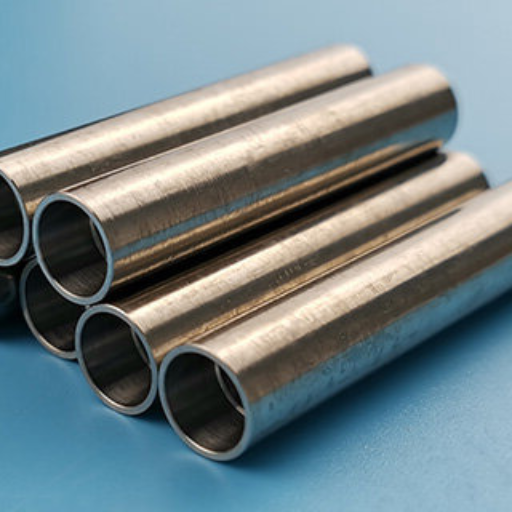
Medical Implants
In the field of medicine, the corrosion resistance of titanium is highly applicable especially in the creation of implants. Titanium is widely used for joint replacement, dental implants and orthopedic screws and pins due to its biocompatibility. It prevents bodily fluids from sinking into it which ensures that implant materials are not affected by these elements over a long period thus maintaining their stability and functionality. So as to reduce chances of complications therefore fewer revisions, this improves the longevity of the material hence it reduces chances for complications. Furthermore, since titanium’s strength-to-weight ratio provides adequate mechanical support without adding excess weight to a patient’s body hence contributing to ease of natural movement that enhances comfort during medical procedures Titanium makes medical implants more effective; this has been reported in multiple scholarly articles.
Marine Equipment
Marine equipment often have to withstand severe sea water environments where exceptional corrosion resistance afforded by Titanium comes in handy. The primary sources indicate that saltwater cannot corrode this metal making it an excellent choice for constructing ship components, submersibles and offshore structures. This means that such devices can remain operational for extended periods with minimal breakdowns or need for spare parts hence saving on maintenance costs. Marine engineering employs titanium so as to increase durability while enhancing efficiency and safety when operating ship based equipment.
Industrial Uses
One vital aspect making titanium have widespread utilization is its ability to resist corrosion. For example, in industries like chemical processing, power generation and aerospace where there is high demand for immunity towards chemical attack, this substance performs remarkably well . One vital feature about such systems is that they tend not break down when exposed over a long time span such as exposure to working acids or even during normal work involving these chemicals . The upshot will be increased incidence rates of accidents arising from premature failure plus higher running costs attributable to frequent replacements and repairs due wear out (Carpenter et al., 2017). Moreover, titanium’s high strength-to-weight ratio facilitates the production of lighter and stronger components that have contributed to advancements in various high-performance industrial sectors.
Frequently Asked Questions (FAQs)
Q: Do titanium rust?
A: No, titanium does not rust. It is naturally resistant to rust and corrosion since it forms a protective oxide film.
Q: What makes pure titanium not to rust?
A: Pure titanium oxidizes when it comes into contact with oxygen forming a strong, stable oxide layer on its surface. This passive film protects the metal from corrosive attacks and rusting effects.
Q: Can titanium corrode?
A: However, under extreme conditions such as prolonged exposure to highly alkaline or acidic media, even though highly resistant against corrosion and rusting, titanium may corrode. Nevertheless, it is much more resistant compared to other metals.
Q: How does titanium withstand rust and corrosion?
A: This element resists both corrosion and rust because a thin protective oxide film forms on its outermost skin. The underlying high-purity Ti is protected by the layer made up of mainly TiO2 which prevents further oxidization.
Q: Which types of environments can be resisted by titanium against corrosion?
A: Salt water, chlorine, many acids can all be withstood by Titanium hence making it suitable for marine applications as well as chemical processing plants. This makes this kind of material adaptable in different environmental difficulties due to its resistance against corrosion.
Q: How does an oxide film protect titanium?
A: The “passive” or “oxide” coating of Titanium generates within milliseconds when combined with oxygen transforming into air-tight stability that ends any further oxidation processes thereby forbidding the action of atmospheric conditions like wetness on this metal
Q: Are all titanium products corrosion-proofed?
A; A lot of products manufactured using Titanium are developed specifically to utilize its natural anti-corrosion properties Nevertheless the level of effectiveness thereof will depend upon whether pure Titanium or an alloy containing Titanium has been used.
Q; What happens if you scratch the protective layer off fromTitanium?
A; If you happen to scratch the protective oxide film of titanium, it will re-form almost immediately upon exposure to air, continuing to protect against rust and corrosion.
Q: Can titanium be used in a marine setting?
A: Yes. Titanium-based products are perfect for use in maritime applications. This resistance makes it an ideal material for use in seawater environments but this is not limited to water alone.

